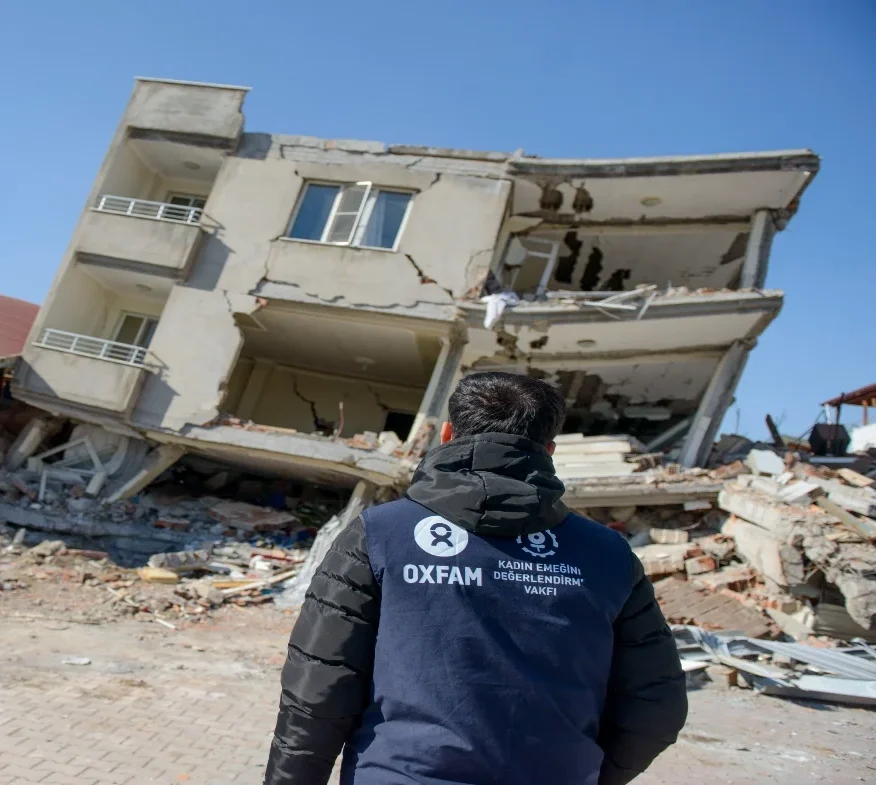
At a glance
Providing clean water, food, cash, sanitation, and protection to those most affected by crises, and advocating for change to the underlying systems that cause them
Facing a world with intensifying challenges, we are committed to responding across short term humanitarian relief, longer-term social change, and peacebuilding so that people can enjoy the full spectrum of human rights. These combined approaches are needed to tackle the systemic inequalities that trap people in poverty and expose them to risk.
Working in close relationship with local partners and communities, together we protect lives and help those at risk plan for, withstand, and recover from emergencies. By continually learning from others, adapting our practice, and sharing our experience and innovations we aim to influence policies across the global humanitarian sector and beyond.
Our evidence-led humanitarian approach is based on four pillars.
Feminist principles: Our commitment to feminist leadership and practices is aimed at transforming the ways in which we understand and redistribute power.
Local humanitarian leadership: We aim to enable, support, and facilitate the work of local actors and their networks as they shape disaster management programs, advocate for change, and shift into roles of greater power and responsibility.
Safe programming: We analyse the existing and potential risks people may face throughout our humanitarian responses. This includes being conflict sensitive, preventing or reducing the risks of gender-based violence, prevention of sexual exploitation, abuse and harassment, as well as upholding humanitarian principles.
Community engagement: Communities in crisis are the central actors in their own survival and need to be in charge of their own recovery. We work to help them address the inequalities that create and increase the risk of conflict and disaster, listening to their concerns, and building on their knowledge and capacities. We proactively seek out feedback from the communities we work with and use their suggestions to adapt our work to meet evolving needs.
A (More) Feminist Approach to Principled Humanitarian Aid

Local Humanitarian Leadership: The View from Local Actors

Oxfam and Protection: A guidance note (2022 update)

Rapid Market Assessment: A beginner’s guide

Resources for Community Engagement in WASH

From Participation to Leadership: A resource pack on community-based protection

Lighting, Gender and Safety in Emergencies

Oxfam Minimum Standards for Gender in Emergencies

Market-Based Programming: What’s it all about?

Photo captions and credit
Oxfam, together with partners in Turkiye and Syria working to reach nearly 2 million people affected by the quake with aid and support. Tineke D’haese/Oxfam







